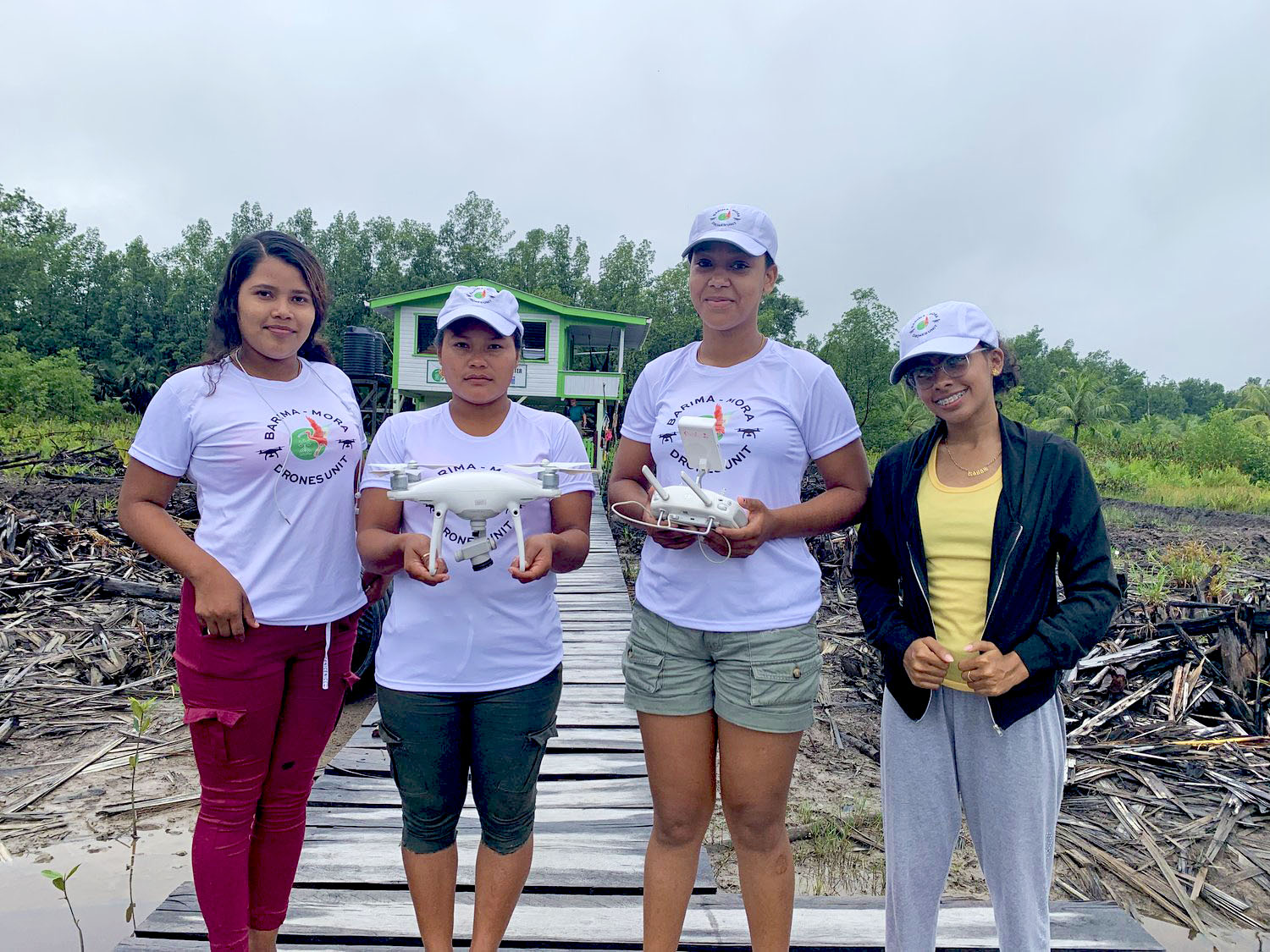How does drone operation relate to the study of oceanic sciences? Ask Sarah Singh, a 21 year old Marine Biology student in her final year at the University of Guyana. Sarah spends much of her time studying, working, and volunteering with environmental and community development groups, but she has also devoted her time to becoming a certified drone operator, gaining knowledge in business and accounting, working in the field studying marine science, and aiding her community along with four indigenous communities, namely Imbotero, Morawhana, Smiths Creek, and Aruka, in the Barima-Mora Passage, Guyana’s largest and most intact mangrove ecosystem.
Sarah currently acts as the Project Administration and Communications Officer for Guyana Marine Conservation Society where she plays several roles including being an aerial drone trainer, hosting and making minutes for meetings, preparing documents, following up on project activities, and hosting webinars, just to name a few. As a drone trainer, Sarah instructs the trainees on using aerial drones to monitor the activities occurring in the Barima-Mora Passage. These include unauthorised removal of mangrove trees and other unsustainable and illegal activities that affect the health and state of the coastal and marine ecosystems in Guyana. In the near future, Sarah will be exposing the trainees to underwater drones to monitor the activities occurring in the water in and around the Barima-Mora Passage, as well.
Sarah, and the Guyana Marine Conservation Society, strive to engage the community and combine community action with science to protect Guyana’s coastline and biodiversity. From their website the Guyana Marine Conservation Society website is “a country-wide community of ocean lovers all working together towards our vision of a sea full of life, where nature flourishes and people thrive. We fight for the future of our ocean through people-powered action, with science on our side.”
Sarah and her research are key pieces of this puzzle. She believes that it is important to engage the community with her work so that the public can learn through theoretical and practical experiences and pass on the knowledge to the younger generations and other community members. Involving and educating more of the public allows people to be a part of protecting their environment and raising awareness, all with the goal of influencing others to do the same.
Sarah shares: “I hope my voice and work as a marine educator will inspire others to join Marine Biology and other related fields, to protect our planet’s natural resources, especially Guyana’s coastal and marine ecosystems in a time of the growing oil and gas sector. I also hope that my actions and words can inspire young girls and boys to follow their passion and achieve their goals.”
Sarah credits those around her for her continued passion for marine science and education. She shares that so many female marine biologists and conservationists, especially those from the Guyana Marine Conservation Society, are dedicated to protecting and raising awareness about the importance and threats faced by Guyana’s natural resources and coastal and marine ecosystems, and this continues to fuel her. Thankfully Sarah’s experience as a woman in marine science has been amazing thus far as she is fortunate enough to be surrounded by other women in science who uplift, support, motivate and look out for each other. Specifically, Sarah adds: “The work of Mrs. Annette Arjoon- Martins has inspired me tremendously. She has inspired and provided opportunities for many Guyanese, especially young girls and women, through her years of experience working with marine and coastal ecosystems, and community development projects.”
This story was first published by Women In Ocean Science

